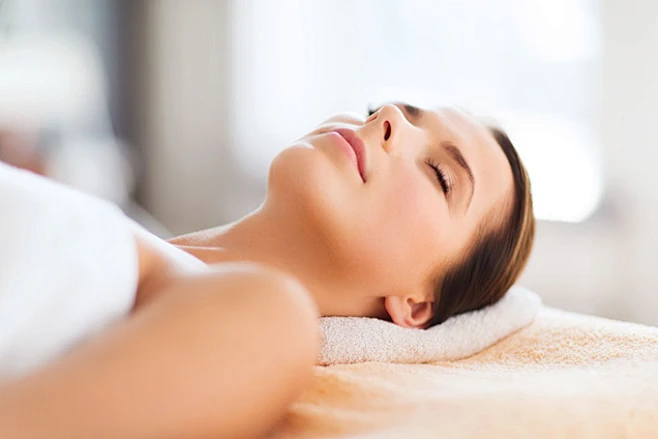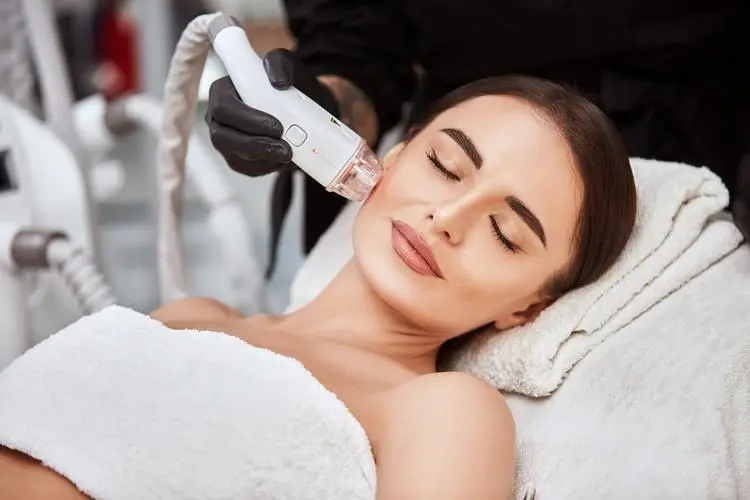In today’s fast-paced world, many people often overlook the importance of adequate sleep. However, sleep is not just a time for the body and mind to rest; it is also a crucial factor in maintaining healthy, youthful skin and slowing down the aging process. Quality sleep plays a vital role in skin repair and regeneration, effectively delaying the signs of aging and keeping your skin vibrant and youthful.

1. The Relationship Between Sleep and Skin Repair

Sleep is a critical period for skin repair. During deep sleep, the body releases growth hormones, which promote cell repair and regeneration. During the day, the skin is exposed to harmful factors such as UV rays and pollution, increasing the risk of cell damage. Nighttime sleep provides an opportunity for the skin to recover, allowing damaged cells to be repaired and new cells to be generated. If sleep is insufficient, this repair process is compromised, leading to accelerated skin aging.
2. Sleep and Collagen Production

Collagen is a key protein that maintains the skin’s elasticity and firmness. As we age, collagen production gradually decreases. However, good sleep can stimulate collagen synthesis, helping to keep the skin firm and elastic. Lack of sleep reduces collagen production, leading to sagging skin, wrinkles, and fine lines. Therefore, ensuring sufficient sleep is an essential part of maintaining youthful skin.

3. The Impact of Sleep on Skin Hydration

Adequate sleep helps maintain the skin’s moisture balance. When sleep is insufficient, the body’s ability to regulate moisture is impaired, leading to dry, rough skin, and even peeling. Quality sleep allows the skin to stay hydrated, reducing the formation of fine lines and making the skin appear smoother and more plump.

4. Negative Effects of Sleep Deprivation

Chronic sleep deprivation not only affects skin repair and regeneration but also triggers a range of skin problems. For example, lack of sleep can cause dark circles, puffiness around the eyes, and the development of bags under the eyes. Additionally, sleep deprivation can worsen inflammatory skin conditions such as acne and eczema. Over time, lack of sleep accelerates the aging process, causing the skin to lose its glow and elasticity.
5. How to Improve Sleep Quality for Anti-Aging Benefits

To achieve good sleep and support anti-aging for your skin, consider the following measures:
- Maintain a Regular Sleep Schedule: Try to go to bed and wake up at the same time every day to keep your biological clock in sync.
- Create a Sleep-Friendly Environment: Ensure that your bedroom is quiet and comfortable, avoiding bright lights and noise. Choose a mattress and pillow that suit you to help your body relax better.
- Avoid Stimulants Before Bed: Refrain from using electronic devices, consuming caffeinated beverages, or engaging in intense physical activity before bedtime to avoid disrupting your sleep.
- Exercise Moderately: Regular moderate exercise can improve sleep quality, but avoid intense workouts close to bedtime.

In conclusion, sleep is a fundamental aspect of anti-aging for the skin. By getting adequate and high-quality sleep, we provide our skin with the necessary time for repair, maintaining hydration and elasticity, and slowing down the aging process. Cultivating good sleep habits in daily life not only benefits overall health but also serves as the secret weapon for keeping your skin youthful and radiant.


